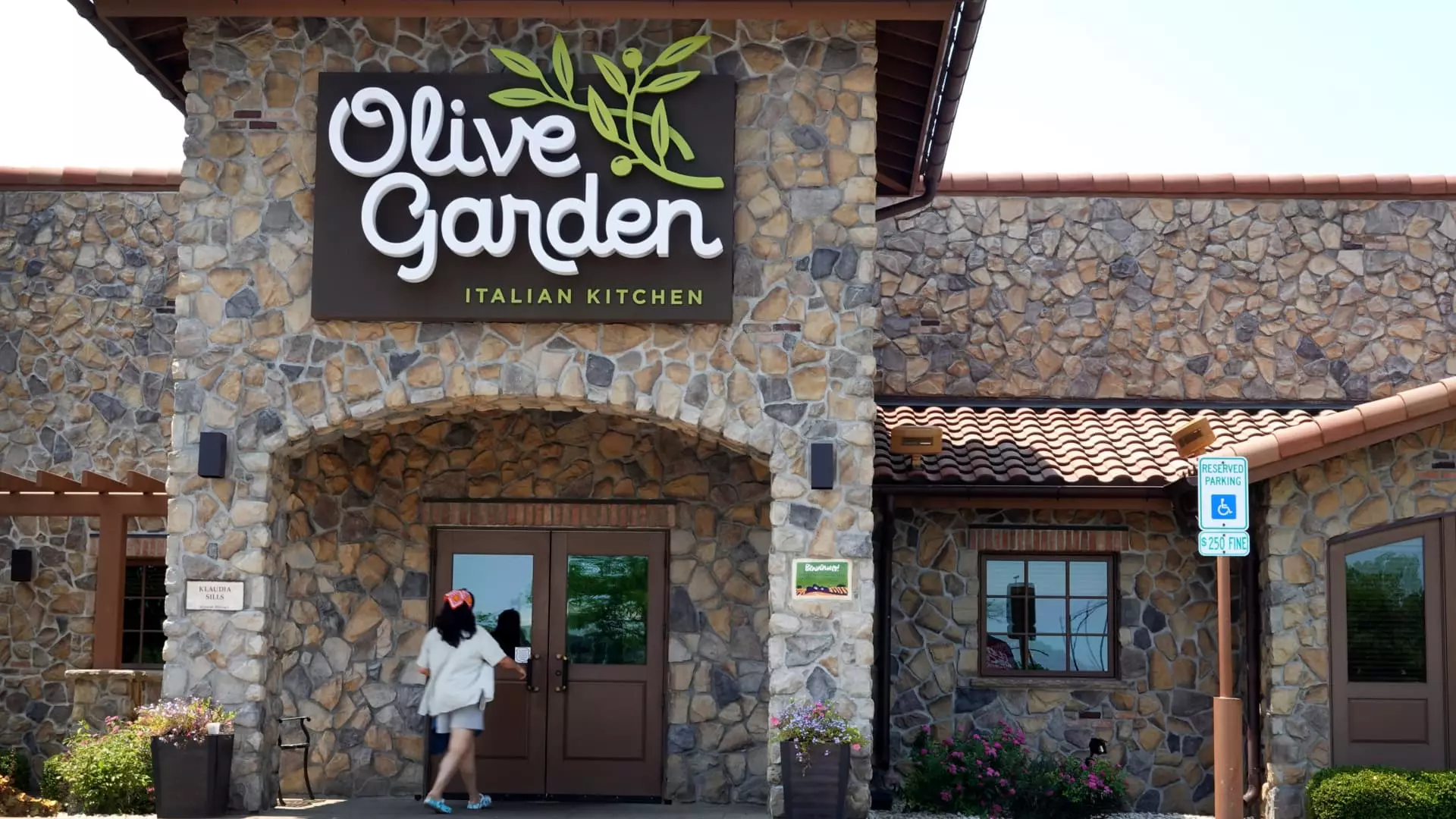Darden Restaurants, a notable player in the dining sector, encountered mixed fortunes in its latest financial reporting. In a recent press release, the company revealed earnings for the quarter ending August 25 fell short of analyst expectations, demonstrating a slight decline in sales across key brands, particularly Olive Garden and its fine-dining counterparts. This underperformance makes one question the health of the overall restaurant industry, especially as consumer habits continue to evolve in a post-pandemic landscape.
The company’s CEO, Rick Cardenas, expressed confidence despite the disappointing results. “While we fell short of our expectations for the first quarter, I firmly believe in the strength of our business,” he asserted. His statement conveys a sense of optimism grounded in the belief that the company’s strategies align with long-term objectives rather than offering short-lived fixes to immediate challenges. This approach is commendable, as it prioritizes sustainability over mere revenue generation in an industry known for its volatility.
Examining the numbers reveals a complex picture. Darden reported adjusted earnings of $1.75 per share compared to the anticipated $1.83. Revenue figures also lagged behind forecasts, coming in at $2.76 billion instead of the expected $2.8 billion. Notably, the company’s net income surged to $207.2 million from $194.5 million year-over-year; however, this increase masked troubling trends in comparable sales. The company’s same-store sales dipped by 1.1%, indicating that the traffic to its venues may be faltering or that customers are choosing to dine elsewhere.
Brand-Specific Performance
A deeper dive into individual brand performance highlights significant disparities. Olive Garden, once a staple of casual dining, saw a 2.9% decline in same-store sales. In reaction to these challenges, the brand plans to reintroduce its popular “Never Ending Pasta Bowl,” aimed at recapturing customer attention and driving foot traffic. Conversely, Darden’s fine dining segment, which encompasses renowned establishments like Eddie V’s and The Capital Grille, reported more pronounced struggles with a staggering 6% decline, illustrating the challenges in attracting dine-in customers during economically uncertain times.
In contrast, LongHorn Steakhouse stood out as a beacon of growth with a 3.7% increase in same-store sales, highlighting its resilience compared to the other brands within Darden’s portfolio. This divergence indicates that certain concepts may be better positioned to evolve with consumer preferences as dining experiences continue to shift.
Despite the lackluster quarterly results, Darden maintains its full-year projections, forecasting earnings per share between $9.40 and $9.60 and net sales between $11.8 billion and $11.9 billion. This steadfast outlook signals confidence in the operational strategies being executed across its brands. Perhaps the key to overcoming these short-term challenges lies in how effectively Darden adapts to shifting consumer tastes, leverages successful brands like LongHorn, and revitalizes struggling ones like Olive Garden.
The recent earnings report from Darden Restaurants encapsulates both the resilience and the challenges of the current dining landscape. While the company grapples with declines in core sales and shifting customer preferences, its commitment to long-term strategies and adaptation provides a glimmer of hope for future recovery. The coming months will be critical in determining how effectively Darden can navigate its challenges while maintaining the loyalty of its customer base.

